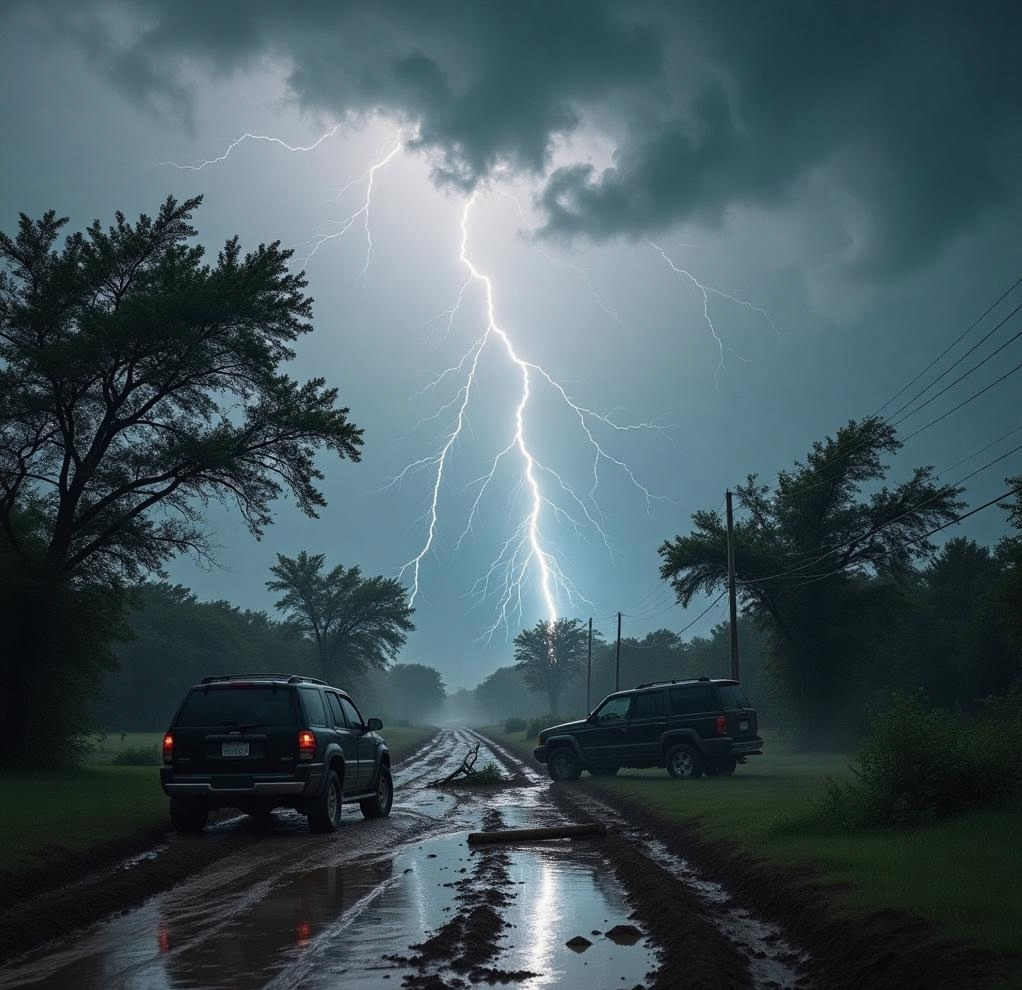What is the most common cause of power outages?
Severe weather conditions, including storms, hurricanes, and high winds, are the leading causes of power outages. These events damage power lines, disrupt grid power, and leave homes and businesses without electricity. As climate change intensifies, weather-related blackouts are becoming more frequent, emphasizing the need for reliable backup power solutions.

A home battery energy storage system can provide uninterrupted power during blackouts. By storing electricity from the grid or solar panels, these systems ensure homes and businesses have access to clean energy when outages occur. Regular maintenance and energy management strategies can maximize battery efficiency and prolong backup power availability.
Power outages are more than just inconveniences—they disrupt daily life, impact businesses, and compromise safety. Understanding their causes and effects is crucial to finding effective solutions.
Table of Contents
Understanding Power Outages: Frequency and Impact on Daily Life
Power outages are an increasingly common issue worldwide, affecting millions each year. The frequency of blackouts depends on various factors, including infrastructure reliability, weather conditions, and energy demand. In areas with outdated grid power systems, blackouts can occur multiple times a year, while regions prone to extreme weather may experience even more disruptions.
The impact of power outages extends beyond simple inconvenience. For households, a lack of electricity disrupts heating, cooling, and essential appliances. Families must rely on alternative power sources, which may not always be reliable. Businesses, on the other hand, suffer from operational delays, financial losses, and potential security risks. Critical sectors like healthcare and manufacturing face significant threats, as power failures can jeopardize life-saving medical equipment and halt essential industrial processes. These realities underscore the importance of investing in energy innovation and backup solutions such as home energy storage and commercial solutions.
Longer and more frequent blackouts can also result in spoiled food, loss of internet connectivity, and failure of communication devices. As digital dependency grows, the need for sustainable energy and reliable power backup solutions becomes even more pressing. Energy resilience is key to ensuring stability in both residential and commercial settings.
The 5 Most Common Causes of Power Outages

- Severe Weather Conditions
Extreme weather events like storms, hurricanes, and heavy snowfall can damage power lines and transformers, leading to widespread blackouts. High winds can bring down trees, which in turn disrupt the power supply. Flooding can cause electrical substations to fail, cutting power to entire regions. These disruptions highlight the need for sustainable energy solutions such as battery energy storage systems that can provide emergency backup. - Equipment Failure and Aging Infrastructure
Many power grids operate on outdated infrastructure that struggles to meet modern energy demands. Transformers, power lines, and substations can fail due to wear and tear, resulting in unexpected outages. In some areas, decades-old electrical grids are unable to support the growing energy consumption of modern households and businesses. Investing in industrial energy storage can help businesses mitigate these risks by providing a reliable alternative power source that operates independently of failing infrastructure. - Overloaded Power Grids
High electricity demand, especially during peak seasons, can overwhelm the grid. When energy consumption surpasses the supply capacity, utilities may enforce rolling blackouts. This is particularly common in regions experiencing rapid urbanization or population growth. Battery storage solutions allow homes and businesses to store excess energy and use it when needed, reducing dependency on grid power. Additionally, shifting to renewable energy sources can alleviate pressure on traditional power infrastructure and promote a more sustainable energy system. - Natural Disasters and Wildfires
Earthquakes, floods, and wildfires can severely damage power lines and substations, leading to prolonged outages. Wildfires, in particular, have become an increasing threat, as they not only destroy electrical infrastructure but also force power companies to shut down the grid as a precautionary measure. In such situations, a battery energy storage system offers a dependable power backup, ensuring continuous operation of essential devices and systems. Businesses that depend on refrigeration, data centers, or manufacturing can greatly benefit from these systems to prevent costly downtime. - Human-Related Factors and Cyber Threats
Human errors, vandalism, and cyberattacks on power grids can lead to outages. As digital threats increase, securing reliable energy storage solutions ensures homes and businesses remain powered even in the face of unexpected disruptions. Hackers targeting power infrastructure can cause widespread blackouts, which may take days or even weeks to resolve. Battery storage provides an immediate and effective countermeasure against such threats, reducing vulnerability to cyber incidents and enhancing energy security.
The Consequences of Power Outages: Why Preparedness Matters
Power outages affect more than just convenience; they pose safety risks and financial burdens. Loss of heating or cooling can lead to health issues, particularly for vulnerable populations. Businesses suffer from lost productivity, spoiled inventory, and damaged equipment. Additionally, frequent outages increase reliance on costly fuel-based generators, which contribute to environmental pollution.
Extended blackouts can also disrupt essential services like water supply and emergency response systems. Hospitals rely on electricity to power critical equipment, while law enforcement and fire departments depend on functioning communication systems. The broader societal impact of power outages underscores the necessity of investing in grid power resilience and advanced energy storage solutions.
Having a robust power backup plan minimizes these consequences. Renewable energy and home energy storage solutions provide sustainable alternatives, offering reliability and peace of mind in times of crisis. As part of the energy revolution, investing in clean energy storage ensures long-term resilience against power disruptions.
How Battery Storage Provides Reliable Backup Power
A battery energy storage system stores electricity from solar panels or the grid, making it available during blackouts. Unlike traditional generators, which rely on fuel, battery storage offers a cleaner, quieter, and more sustainable energy solution.
One of the key benefits of battery storage is its ability to integrate with solar energy systems, allowing homeowners to harness renewable energy and reduce dependence on grid power. Additionally, advanced battery systems provide remote monitoring and smart energy management, ensuring optimized performance and efficiency.
For commercial and industrial applications, large-scale battery storage solutions help businesses maintain operations during outages, reducing financial losses and improving energy reliability. By adopting energy storage, companies can contribute to a cleaner, more resilient energy future. Furthermore, modern battery storage systems come with intelligent software that allows users to monitor and control their energy usage in real time, maximizing efficiency and savings.
Choosing the Right Battery Storage System for Your Needs
Selecting the best energy storage solution depends on factors such as power requirements, budget, and compatibility with existing infrastructure. Homeowners should consider lithium-ion battery systems, which offer high efficiency and long lifespan. Commercial and industrial solutions, such as modular battery systems, provide scalable options to meet varying energy demands.
Hicorenergy offers a range of high-performance battery storage solutions tailored for residential and commercial applications. With a focus on innovation and sustainability, our products ensure seamless integration with renewable energy systems and deliver reliable power backup during outages. Investing in energy storage not only provides immediate relief during power disruptions but also contributes to long-term environmental and economic benefits.
Conclusion
Power outages are unpredictable, but preparedness is key. Investing in a battery energy storage system ensures uninterrupted electricity, enhances energy security, and supports the transition to clean energy. Contact Hicorenergy today to find the best energy storage solution for your needs.
-scaled.png)
